故事梗概
l 爱德华.斯诺登,29岁,国家安全局合同承包商,对外披露了大量绝密信息。
l 自美国政府秘密间谍计划被详细披露后,他本人现藏匿于香港。
l 三位国家安全局官员——内部举报人——告诉《今日美国》记者,斯诺登的举报证明了他们的无辜。
l 本月一位国家安全局的合同承包商披露(美国)政府搜集美国人的电话和上网信息之绝密信息细节,此时资深情报人士圈里的一个特定群体舒了一口气。
托马斯.德莱克、威廉姆.宾尼、J.柯尔克.韦伯,三位同属这个特定兄弟会的成员,均是国家安全局的内部举报开路人。
多年来这三位内部举报人告知任何有心知情的人,国家安全局搜集美国公民的大量通讯信息。三位在局里均居要职数十年,负责设计并管理这个,按他们的话说,后来转而用来对付美国公民的信息搜集系统。当他们确信美国基本宪法所赋予(公民)的权利受到侵犯时,他们首先向他们的主观上司提出申诉、然后是联邦调查人员、国会监督委员会,最后才向媒体披露。
在(美国)的情报系统看来,这三位是反面人物,他们泄露了政府绝密信息和至关重要的、同时也是成功的计划企图。他们被迫接受刑事犯罪调查,被迫放弃职业生涯、以及多年来建立的个人名誉和朋友关系。
今天,他们觉得被还以清白。
他们说,前国家安全局合同承包商的系统管理员,29岁的斯诺登,其所披露的文件证实了他们当初就(美国)政府对无涉嫌劣行的千百万美国公民的进行大规模侦听监控的申诉。他们说,所泄露的文件仅是该政府(监控)计划覆盖范围的一个暗示。
星期五(2013/6/15)《今日美国》将德莱克、宾尼、韦伯聚在一起,就此事件发生后,第一次就国家安全局泄密一事进行讨论;与他们的政府问责项目律师杰席琳.拉达克一起,就事件给人们暗示和反响做了谨慎分析讨论。他们对政府就此事的表态——认为泄密威胁国家安全,提出异议。奥巴马总统声称,国会和法院正有效关注此事。
同时他们也警示斯诺登下一步他应该做何心理准备。
三位原国家安全局内部举报人就爱德华.斯诺登事件所泄露的文件能使他们从中得到什么做了讨论。
______________________________________________________________________________________
Peter Eisler and Susan Page, USA TODAY 8:01 p.m. EDT June 16, 2013
彼得.艾斯乐/苏珊.佩琪2013/6/16发自《今日美国》的报道
In a roundtable discussion, a trio of former National Security Agency whistle-blowers tell USA TODAY that Edward Snowden succeeded where they failed.
在一个圆桌讨论中,三位原美国国家安全局资深雇员告知《今日美国》记者,斯诺登恰好在他们的失败之处成功了。
Peter Eisler and Susan Page, USA TODAY 8:01 p.m. EDT June 16, 2013
In a roundtable discussion, a trio of former National Security Agency whistle-blowers tell USA TODAY that Edward Snowden succeeded where they failed.
(Photo: H. Darr Beiser, USA TODAY)
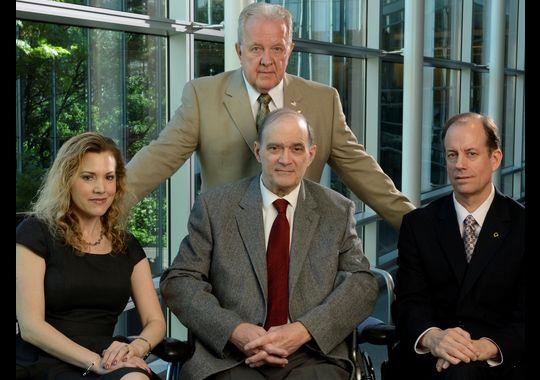
威廉姆·宾尼:在政府供职时我们用了差不多七年时间试图让政府意识到他们所作所为与宪法不符,违背法律;让他们公开认错并设计出符合宪法和现行法律的方法以达到其所追求的最终目的。结果一败涂地,因为国会里压根就无人理会,同时我们无法与法院的任何人对接,司法部压根就无人理会,检察长办公室对此毫不在意。我们所做的一切努力没有带来丝毫变化,事态只能是继续恶化和扩散。
杰席琳·拉达克:他们的确通过各种及所有的正规内部渠道向上反映,但均以失败告终,不仅如此,这反倒使他们身陷囹圄......检察长反倒把他们的姓名提交给司法部,依据反间谍法对他们施以刑事诉讼。他们三位都成了联邦政府刑事调查目标,汤姆结果被起诉——理由却是内部举报。
问:如今争论的问题是:斯诺登是英雄还是叛徒。
宾尼:当然,首先他的举动是一个了不起的公益行为,披露了这些(政府)计划,并使政府处在一个须对自己行为承担负责的地位。至少此事可以像今天这样进行某种形式的公开讨论。
但是现在他开始提及(美国)政府黑客中国网络和诸如此类的事情。此举有些离谱。我不认为他有涉及那种计划的权限,只是他被某个人告知;新闻是如此报道,所以他说,某个人,一个可靠消息来源告诉他,美国政府正在对所有那些国家的网络实施渗透。这就不是出自公益目的之举,而是略超出公益范畴。
所以,他正在由一个内部举报人向叛徒过渡。
杰席琳·拉达克:“英雄还是叛徒?”是个老问题。我不喜欢这些标签,把人分成两个极端的类型,要么是恶棍、要么是圣人…… 依照法律,他—斯诺登的所作所为符合内部举报人这个法律定义。就他的个案而言,他就是一个揭露了大规模劣行、渎职和违法行为的普通人……而且他也说过,他披露这些信息是出自公益,同时也想就此进行辩论。
托马斯·德莱克:他是一个美国人,接触到有关美国政府最深层秘密的一些令人难以想象的信息数据。一个拥有非常系统化,覆盖非常广泛,规模巨大的侦听监控网国家的初步轮廓和形态正在展现在人们面前,而且其中大部分内容与我们国家的立国之本相违背——事实上,这正是当初我们美国革命的主要原因。覆盖多方期待和满足各种目的宪法第四修正案在9/11后被废除......
毫无疑问,斯诺登是一个典型的内部举报者,而且也毫无疑问他出自公益目的披露了信息。我们现在终于可以就9/11之后从未被提及的话题进行辩论了。
问: 詹姆斯·克莱珀,(美国)国家情报总监说,斯诺登的泄密给美国造成“巨大、严重的损失”。你们同意吗?
韦伯:不,我不同意。人人都知道,我问过周边的人:你通常是否相信政府权力部门在通过网络和电话搜集你的信息?“哦,当然了。”无人感到吃惊。
问:外国政府,恐怖组织现在是否已经得到以前没有得到的信息?
宾尼:早在…..1997-98年……那些恐怖分子早已知道我们对他们所有的通讯内容进行全面侦听监视。他们对我们的做法早就习以为常。所以美国的新闻报道说我们在侦听监控,对恐怖分子而言毫无作用。他们早就习以为常了。
杰席琳·拉达克:每次情报外泄都会出这事…..就托马斯的案例而言,他直接被谴责为,因为他造成的损失,他的手上就沾有士兵的鲜血。我人为,准确的措辞应该是:“当国家安全局变得黑暗、不透明时,就会有士兵们牺牲。”这与托马斯的信息披露毫无关联,但这往往是散布恐慌情绪的一个因素,总以为不保密就会导致士兵牺牲。
问:外国情报监控法庭(FISC)发给Verizon电讯公司搜查令——斯诺登泄露的文件,从这份文件您能看出什么?
德莱克:那是一个非同寻常的法院传令,我的意思是说,我们第一次在公开环境下见到这份真实的、带密级的监控法庭的传令。我实在不想再称其为“外国情报”法庭,事实上它完全是一个监控侦听法庭,不是吗?我们现在都成了外国人。就凭这纸传令,Verizon电讯公司每天每个电话的通信记录都必须交给国家安全局(NSA)。
没什么正当的理由,没有任何反恐调查或行动的提示。基本就是:“把数据给我”......
你要了解事情底细,这里确实还有另外两个方面的因素。一个是联邦调查局(FBI)、一个是那份指令——要求Verizon将所有那些数据传给国家安全局(NSA)、而不是联邦调查局(FBI)。
宾尼:这实际上就是说,国家安全局(NSA)成了联邦调查局(FBI)信息处理服务机构,使其可以直接在审讯中使用这些信息......给人们的暗示是:所有人的隐私受到侵犯,它可以对这个国家的任何一个人几乎过去十二年的行为做追溯分析。
另外,这个指令文件的序号也显重要:13—横线—80,即:2013年第80号指令.......这些指令文件按季度签发,现在是第二季度,80除以二,等于40(每季度签发量40份)。
如果假设所有这些签发令与公司有关或与这些公司向政府提交材料的次数有关联,那么这少有40家公司受牵扯。然而,如果Verizon公司接到的指令排序为80号文件,第一季度的首发指令文件为1号,那就有可能使多达79家公司受牵连。
因此大约40—79家公司,互联网和电信公司参与向国家安全局(NSA)提交相关数据。
杰席琳·拉达克:我认为这是一个违法的指令。同时我也庆幸我们终于能见到实证—这份由外国情报监控法庭(FISC)签发的指令文件。他们没有任何权利授权实施对内监控。
宾尼:文件的真实性不可否认,毫不奇怪。
韦伯:这就是我们疑虑的正式依据。
问:你们诸位当初都身居高职,难道就没亲眼见过一份类似文件?
德莱克:这都是绝密文件,严格保密......是秘密申诉法庭中的秘密法庭。这些文件即便在政府机构内部也只是在小范围内传阅。
问:你们看到这份文件的第一反应是什么?
宾尼:我的第一反应是:这就是我们一直在说的事情的证据文件,这回他们无法否认。
德莱克:对我来说,这就是我们现在所指控的当初机构犯罪的实物证据。
宾尼:现在仍然是机构犯罪行为。
韦伯:是犯罪。
问:托马斯·德莱克,你曾经做了近十年的国家安全局合同承包商,后来成为其正式职员。一个在夏威夷的29岁的合同承包人能过接触到他所披露的那样信息,你不感到吃惊吗?
德莱克:其实这与29岁无关,而是由于(我们)处在互联网时代和数码时代。我们所做的一切,无论公开的还是私下的都要通过互联网。无论是公开的互联网还是今天互联网的黑暗面,就技术而言都是如此……
系统管理员在互联网系统中是至关重要的角色之一。需要有人维护,需要有人保证其运转,需要有人维系服务合同关系。
宾尼:作为系统管理员他的部分工作是对系统进行维护,确保数据库运转,保障通讯畅通,维护那些对他们作业进行询问的程序。也就是说,他如同一个超级用户,可以进入网络查询任何文件或任何系统,添加或修改等等,确保运作正常——如果出现故障,系统的备份和正常运转有他负责。
这意味着他具备进入系统的通道并可以植入任何东西。所以他说“我甚至可以把总统或大法官作为监控目标。如果他知道电话号码或附带参数,他可以将其植入目标清单,然后在全球范围内派发。然后通过此种方式回收信息,是的,就是这样。超级用户可以做到这点。
问:如他所说,他可以监听总统电话,是吗?
宾尼:作为超级用户和数据系统的数据管理人,可以做到,他可以进入电话系统并做任何手脚。
问:近年三月份的一个参议院听证会上,俄勒冈民主党参议员伦纳德·怀登(Ron Wyden)问国家情报总监詹姆斯·克拉珀,是否有搜集美国大众信息之事,他回答说“没有”。那是谎言?
德莱克:那是令人难以置信的掩饰。我们现在说的是监督委员会,不能得到一个直截了当的答复,因为如果直接答复就会揭露政府正在秘密进行的背信弃义行为.
问:克拉珀应该怎样回答?
宾尼:他应该说 ,“在公开论坛上我不便评论”。
Story Highlights
· Edward Snowden, 29, an NSA contractor, released a trove of classified information
· He has been hiding in Hong Kong since the secret government spy program was detailed
· 3 NSA officials -- also whistle-blowers -- tell USA TODAY Snowden's claims vindicate them
When a National Security Agency contractor revealed top-secret details this month on the government's collection of Americans' phone and Internet records, one select group of intelligence veterans breathed a sigh of relief.
Thomas Drake, William Binney and J. Kirk Wiebe belong to a select fraternity: the NSA officials who paved the way.
For years, the three whistle-blowers had told anyone who would listen that the NSA collects huge swaths of communications data from U.S. citizens. They had spent decades in the top ranks of the agency, designing and managing the very data-collection systems they say have been turned against Americans. When they became convinced that fundamental constitutional rights were being violated, they complained first to their superiors, then to federal investigators, congressional oversight committees and, finally, to the news media.
To the intelligence community, the trio are villains who compromised what the government classifies as some of its most secret, crucial and successful initiatives. They have been investigated as criminals and forced to give up careers, reputations and friendships built over a lifetime.
Today, they feel vindicated.
They say the documents leaked by Edward Snowden, the 29-year-old former NSA contractor who worked as a systems administrator, proves their claims of sweeping government surveillance of millions of Americans not suspected of any wrongdoing. They say those revelations only hint at the programs' reach.
On Friday, USA TODAY brought Drake, Binney and Wiebe together for the first time since the story broke to discuss the NSA revelations. With their lawyer, Jesselyn Radack of the Government Accountability Project, they weighed their implications and their repercussions. They disputed the administration's claim of the impact of the disclosures on national security — and President Obama's argument that Congress and the courts are providing effective oversight.
And they have warnings for Snowden on what he should expect next.
Three former NSA whistleblowers discuss what they were able to learn from the leaked document in the Edward Snowden case.
Q: Did Edward Snowden do the right thing in going public?
问: 斯诺登所为是否属出自公众利益的正确之举?
William Binney: We tried to stay for the better part of seven years inside the government trying to get the government to recognize the unconstitutional, illegal activity that they were doing and openly admit that and devise certain ways that would be constitutionally and legally acceptable to achieve the ends they were really after. And that just failed totally because no one in Congress or — we couldn't get anybody in the courts, and certainly the Department of Justice and inspector general's office didn't pay any attention to it. And all of the efforts we made just produced no change whatsoever. All it did was continue to get worse and expand.
Q: So Snowden did the right thing?
问:这样说来,斯诺登做了正确的事情。
Binney: Yes, I think he did.
本尼回答:我认为,他做了正确的事。
Q: You three wouldn't criticize him for going public from the start?
问:你们三位不会从一开始就(斯诺登)对公众披露信息提出批评?
J. Kirk Wiebe: Correct.
回答:正确。
Binney: In fact, I think he saw and read about what our experience was, and that was part of his decision-making.
本尼:事实上,在我看来,他所看到的、读道的正是我们所经历的,而这些正是他决策的组成部分。
Wiebe: We failed, yes.
韦伯:我们没有做到,的确如此。
Jesselyn Radack: Not only did they go through multiple and all the proper internal channels and they failed, but more than that, it was turned against them. ... The inspector general was the one who gave their names to the Justice Department for criminal prosecution under the Espionage Act. And they were all targets of a federal criminal investigation, and Tom ended up being prosecuted — and it was for blowing the whistle.
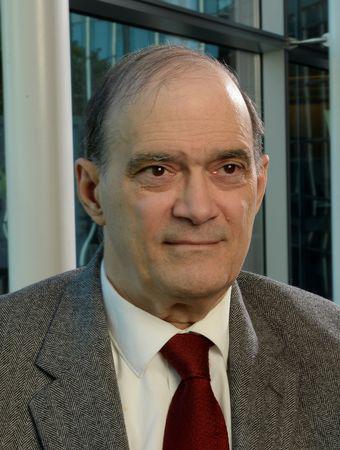
NSA whistle-blower William Binney. (Photo: H. Darr Beiser, USA TODAY)
Q: There's a question being debated whether Snowden is a hero or a traitor.
Binney: Certainly he performed a really great public service to begin with by exposing these programs and making the government in a sense publicly accountable for what they're doing. At least now they are going to have some kind of open discussion like that.
But now he is starting to talk about things like the government hacking into China and all this kind of thing. He is going a little bit too far. I don't think he had access to that program. But somebody talked to him about it, and so he said, from what I have read, anyway, he said that somebody, a reliable source, told him that the U.S. government is hacking into all these countries. But that's not a public service, and now he is going a little beyond public service.
So he is transitioning from whistle-blower to a traitor.
Thomas Drake: He's an American who has been exposed to some incredible information regarding the deepest secrets of the United States government. And we are seeing the initial outlines and contours of a very systemic, very broad, a Leviathan surveillance state and much of it is in violation of the fundamental basis for our own country — in fact, the very reason we even had our own American Revolution. And the Fourth Amendment for all intents and purposes was revoked after 9/11. ...
He is by all definitions a classic whistle-blower and by all definitions he exposed information in the public interest. We're now finally having the debate that we've never had since 9/11.
Radack: "Hero or traitor?" was the original question. I don't like these labels, and they are putting people into categories of two extremes, villain or saint. ... By law, he fits the legal definition of a whistle-blower. He is someone who exposed broad waste, abuse and in his case illegality. ... And he also said he was making the disclosures for the public good and because he wanted to have a debate.
Q: James Clapper, the director of national intelligence, said Snowden's disclosures caused "huge, grave damage" to the United States. Do you agree?
Wiebe: No, I do not. I do not. You know, I've asked people: Do you generally believe there's government authorities collecting information about you on the Net or your phone? "Oh, of course." No one is surprised.
There's very little specificity in the slides that he made available (describing the PRISM surveillance program). There is far more specificity in the FISA court order that is bothersome.
Q: Did foreign governments, terrorist organizations, get information they didn't have already?
Binney: Ever since ... 1997-1998 ... those terrorists have known that we've been monitoring all of these communications all along. So they have already adjusted to the fact that we are doing that. So the fact that it is published in the U.S. news that we're doing that, has no effect on them whatsoever. They have already adjusted to that.
Radack: This comes up every time there's a leak. ... In Tom's case, Tom was accused of literally the blood of soldiers would be on his hands because he created damage. I think the exact words were, "When the NSA goes dark, soldiers die." And that had nothing to do with Tom's disclosure at all, but it was part of the fear mongering that generally goes with why we should keep these things secret.
Q: What did you learn from the document — the Verizon warrant issued by the Foreign Intelligence Surveillance Court — that Snowden leaked?
Drake: It's an extraordinary order. I mean, it's the first time we've publicly seen an actual, secret, surveillance-court order. I don't really want to call it "foreign intelligence" (court) anymore, because I think it's just become a surveillance court, OK? And we are all foreigners now. By virtue of that order, every single phone record that Verizon has is turned over each and every day to NSA.
There is no probable cause. There is no indication of any kind of counterterrorism investigation or operation. It's simply: "Give us the data." ...
There's really two other factors here in the order that you could get at. One is that the FBI requesting the data. And two, the order directs Verizon to pass all that data to NSA, not the FBI.
Binney: What it is really saying is the NSA becomes a processing service for the FBI to use to interrogate information directly. ... The implications are that everybody's privacy is violated, and it can retroactively analyze the activity of anybody in the country back almost 12 years.
Now, the other point that is important about that is the serial number of the order: 13-dash-80. That means it's the 80th order of the court in 2013. ... Those orders are issued every quarter, and this is the second quarter, so you have to divide 80 by two and you get 40.
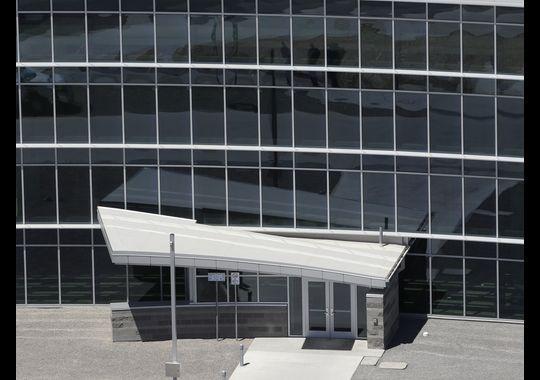
The National Security Agency's data center in Bluffdale, Utah. Former NSA employees interviewed by USA TODAY offered insight on the recent leak of documents by Edward Snowden. (Photo: Rick Bowmer, AP)
If you make the assumption that all those orders have to deal with companies and the turnover of material by those companies to the government, then there are at least 40 companies involved in that transfer of information. However, if Verizon, which is Order No. 80, and the first quarter got order No. 1 — then there can be as many as 79 companies involved.
So somewhere between 40 and 79 is the number of companies, Internet and telecom companies, that are participating in this data transfer in the NSA.
Radack: I consider this to be an unlawful order. While I am glad that we finally have something tangible to look at, this order came from the Foreign Intelligence Surveillance Court. They have no jurisdiction to authorize domestic-to-domestic surveillance.
Binney: Not surprised, but it's documentation that can't be refuted.
Wiebe: It's formal proof of our suspicions.
Q: Even given the senior positions that you all were in, you had never actually seen one of these?
Drake: They're incredibly secret. It's a very close hold. ... It's a secret court with a secret appeals court. They are just not widely distributed, even in the government.
Q: What was your first reaction when you saw it?
Binney: Mine was that it's documentary evidence of what we have been saying all along, so they couldn't deny it.
Drake: For me, it was material evidence of an institutional crime that we now claim is criminal.
Binney: Which is still criminal.
Wiebe: It's criminal.
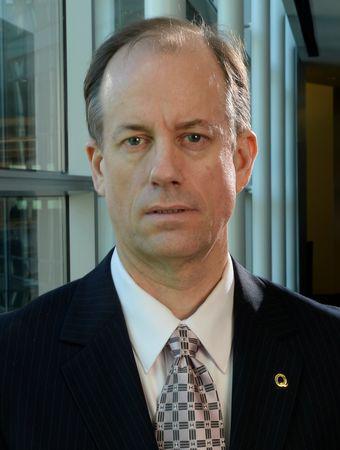
NSA whistle-blower Thomas Drake. (Photo: H. Darr Beiser, USA TODAY)
Q: Thomas Drake, you worked as a contractor for the NSA for about a decade before you went on staff there. Were you surprised that a 29-year-old contractor based in Hawaii was able to get access to the sort of information that he released?
Drake: It has nothing to do with being 29. It's just that we are in the Internet age and this is the digital age. So, so much of what we do both in private and in public goes across the Internet. Whether it's the public Internet or whether it's the dark side of the Internet today, it's all affected the same in terms of technology. ...
One of the critical roles in the systems is the system administrator. Someone has to maintain it. Someone has to keep it running. Someone has to maintain the contracts.
Binney: Part of his job as the system administrator, he was to maintain the system. Keep the databases running. Keep the communications working. Keep the programs that were interrogating them operating. So that meant he was like a super-user. He could go on the network or go into any file or any system and change it or add to it or whatever, just to make sure — because he would be responsible to get it back up and running if, in fact, it failed.
So that meant he had access to go in and put anything. That's why he said, I think, "I can even target the president or a judge." If he knew their phone numbers or attributes, he could insert them into the target list which would be distributed worldwide. And then it would be collected, yeah, that's right. As a super-user, he could do that.
Three former whistle-blowers discuss whether Edward Snowden could tap the president's phone and about what it means to be a "super-user" with USA TODAY reporters Susan Page and Peter Eisler.
Q: As he said, he could tap the president's phone?
Binney: As a super-user and manager of data in the data system, yes, they could go in and change anything.
Q: At a Senate hearing in March, Oregon Democratic Sen. Ron Wyden asked the director of national intelligence, James Clapper, if there was mass data collection of Americans. He said "no." Was that a lie?
Drake: This is incredible dissembling. We're talking about the oversight committee, unable to get a straight answer because if the straight answer was given it would reveal the perfidy that's actually going on inside the secret side of the government.
Q: What should Clapper have said?
Binney: He should have said, "I can't comment in an open forum."
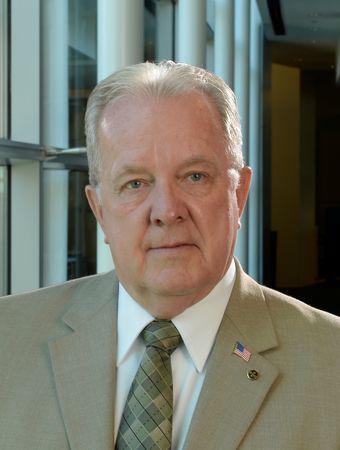
NSA whistle-blower J. Kirk Wiebe. (Photo: H. Darr Beiser, USA TODAY)
Wiebe:Yeah, that's right.
Q: Does Congress provide effective oversight for these programs?
Radack: Congress has been a rubber stamp, basically, and the judicial branch has been basically shut down from hearing these lawsuits because every time they do they are told that the people who are challenging these programs either have no standing or (are covered by) the state secrets privilege, and the government says that they can't go forward. So the idea that we have robust checks and balances on this is a myth.
Binney: But the way it's set up now, it's a joke. I mean, it can't work the way it is because they have no real way of seeing into what these agencies are doing. They are totally dependent on the agencies briefing them on programs, telling them what they are doing. And as long as the agencies tell them, they will know. If they don't tell them, they don't know. And that's what's been going on here.
And the only way they really could correct that is to create billets on these committees and integrate people in these agencies so they can go around every day and watch what is happening and then feed back the truth as to what's going on, instead of the story that they get from the NSA or other agencies. ...
Even take the FISA court, for example. The judges signed that order. I mean, I am sure they (the FBI) swore on an affidavit to the judge, "These are the reasons why," but the judge has no foundation to challenge anything that they present to him. What information does the judge have to make a decision against them? I mean, he has absolutely nothing. So that's really not an oversight.
Radack: The proof is in the pudding. Last year alone, in 2012, they approved 1,856 applications and they denied none. And that is typical from everything that has happened in previous years. ... I know the government has been asserting that all of this is kosher and legitimate because the FISA court signed off on it. The FISA court is a secret court — operates in secret. There is only one side and has rarely disapproved anything.
Three former NSA whistle-blowers discuss whether there is effective oversight on intelligence-gathering with USA TODAY reporters Susan Page and Peter Eisler.
Q: Do you think President Obama fully knows and understands what the NSA is doing?
Binney: No. I mean, it's obvious. I mean, the Congress doesn't either. I mean, they are all being told what I call techno-babble ... and they (lawmakers) don't really don't understand what the NSA does and how it operates. Even when they get briefings, they still don't understand.
Radack: Even for people in the know, I feel like Congress is being misled.
Binney: Bamboozled.
Radack: I call it perjury.
Q: What should Edward Snowden expect now?
Binney: Well, first of all, I think he should expect to be treated just like Bradley Manning (an Army private now being court-martialed for leaking documents to WikiLeaks). The U.S. government gets ahold of him, that's exactly the way he will be treated.
Q: He'll be prosecuted?
Binney: First tortured, then maybe even rendered and tortured and then incarcerated and then tried and incarcerated or even executed.
Wiebe: Now there is another possibility, that a few of the good people on Capitol Hill — the ones who say the threat is much greater than what we thought it was — will step forward and say give this man an honest day's hearing. You know what I mean. Let's get him up here. Ask him to verify, because if he is right — and all pointers are that he was — all he did was point to law-breaking. What is the crime of that?
Drake: But see, I am Exhibit No. 1. ...You know, I was charged with 10 felony counts. I was facing 35 years in prison. This is how far the state will go to punish you out of retaliation and reprisal and retribution. ... My life has been changed. It's been turned inside, upside down. I lived on the blunt end of the surveillance bubble. ... When you are faced essentially with the rest of your life in prison, you really begin to understand and appreciate more so than I ever have — in terms of four times I took the oath to support the Constitution — what those rights and freedoms really mean. ...
Believe me, they are going to put everything they have got to get him. I think there really is a risk. There is a risk he will eventually be pulled off the street.
Three former NSA whistle-blowers discuss what Snowden should expect, and what they would say to him with USA TODAY reporters Susan Page and Peter Eisler.
Q: What do you mean?
Drake: Well, fear of rendition. There is going to be a team sent in.
Radack: We have already unleashed the full force of the entire executive branch against him and are now doing a worldwide manhunt to bring him in — something more akin to what we would do for Osama bin Laden. And I know for a fact, if we do get him, he would definitely face Espionage Act charges, as other people have who have exposed information of government wrongdoing. And I heard a number of people in Congress (say) he would also be charged with treason.
These are obviously the most serious offenses that can be leveled against an American. And the people who so far have faced them and have never intended to harm the U.S. or benefit the foreign nations have always wanted to go public. And they face severe consequences as a defector. That's why I understand why he is seeking asylum. I think he has a valid fear.
Wiebe: We are going to find out what kind of country we are, what have we become, what do we want to be.
Q: What would you say to him?
Binney: I would tell him to steer away from anything that isn't a public service — like talking about the ability of the U.S. government to hack into other countries or other people is not a public service. So that's kind of compromising capabilities and sources and methods, basically. That's getting away from the public service that he did initially. And those would be the acts that people would charge him with as clearly treason.
Drake: Well, I feel extraordinary kinship with him, given what I experienced at the hands of the government. And I would just tell him to ensure that he's got a support network that I hope is there for him and that he's got the lawyers necessary across the world who will defend him to the maximum extent possible and that he has a support-structure network in place. I will tell you, when you exit the surveillance-state system, it's a pretty lonely place — because it had its own form of security and your job and family and your social network. And all of a sudden, you are on the outside now in a significant way, and you have that laser beam of the surveillance state turning itself inside out to find and learn everything they can about you.
Wiebe: I think your savior in all of this is being able to honestly relate to the principles embedded in the Constitution that are guiding your behavior. That's where really — rubber meets the road, at that point.
Radack: I would thank him for taking such a huge personal risk and giving up so much of his life and possibly facing the loss of his life or spending it in jail. Thank him for doing that to try to help our country save it from itself in terms of exposing dark, illegal, unethical, unconstitutional conduct that is being done against millions and millions of people.
Drake: I actually salute him. I will say it right here. I actually salute him, given my experience over many, many years both inside and outside the system. Remember, I saw what he saw. I want to re-emphasize that. What he did was a magnificent act of civil disobedience. He's exposing the inner workings of the surveillance state. And it's in the public interest. It truly is.
Wiebe: Well, I don't want anyone to think that he had an alternative. No one should (think that). There is no path for intelligence-community whistle-blowers who know wrong is being done. There is none. It's a toss of the coin, and the odds are you are going to be hammered.
Three former NSA whistle-blowers discuss whether there is a better way to gather intelligence with USA TODAY reporters Susan Page and Peter Eisler.
Q: Is there a way to collect this data that is consistent with the Fourth Amendment, the constitutional protection against unreasonable search and seizure?
Binney: Two basic principles you have to use. ... One is what I call the two-degree principle. If you have a terrorist talking to somebody in the United States — that's the first degree away from the terrorist. And that could apply to any country in the world. And then the second degree would be who that person in the United States talked to. So that becomes your zone of suspicion.
And the other one (principle) is you watch all the jihadi sites on the Web and who's visiting those jihadi sites, who has an interest in the philosophy being expressed there. And then you add those to your zone of suspicion.
Everybody else is innocent — I mean, you know, of terrorism, anyway.
Wiebe: Until they're somehow connected to this activity.
Binney: You pull in all the contents involving (that) zone of suspicion and you throw all the rest of it away. You can keep the attributes of all the communicants in the other parts of the world, the rest of the 7 billion people, right? And you can then encrypt it so that nobody can interrogate that base randomly.
That's the way of preventing this kind of random access by a contractor or by the FBI or any other DHS (Department of Homeland Security) or any other department of government. They couldn't go in and find anybody. You couldn't target your next-door neighbor. If you went in with his attributes, they're encrypted. ... So unless they are in the zone of suspicion, you won't see any content on anybody and you won't see any attributes in the clear. ...
It's all within our capabilities.
Drake: It's been within our capabilities for well over 12 years.
Wiebe: Bill and I worked on a government contract for a contractor not too far from here. And when we showed him the concept of how this privacy mechanism that Bill just described to you — the two degrees, the encryption and hiding of identities of innocent people — he said, "Nobody cares about that." I said, "What do you mean?"
This man was in a position to know a lot of government people in the contracting and buying of capabilities. He said. "Nobody cares about that."
Lawyer Jesselyn Radack, left, with whistle-blowers J. Kirk Wiebe, standing; William Binney, center; and Thomas Drake. (Photo: H. Darr Beiser, USA TODAY)
Drake: This (kind of surveillance) is all unnecessary. It is important to note that the very best of American ingenuity and inventiveness, creativity, had solved the major challenge problem the NSA faced: How do you make sense of vast amounts of data, provide the information you need to protect the nation, while also protecting the fundamental rights that are enshrined in the Constitution?
The government in secret decided — willfully and deliberately — that that was no longer necessary after 9/11. So they said, you know what, hey, for the sake of security we are going to draw that line way, way over. And if it means eroding the liberties and freedoms of Americans and others, hey, so be it because that's what's most important. But this was done without the knowledge of the American people.
Q: Would it make a difference if contractors weren't used?
Wiebe: I don't think so. They are human beings. You know, look at what's going on with the IRS and the Tea Party. You know, there (are) human beings involved. We are all human beings — contractors, NSA government employees. We are all human beings. We undergo clearance checks, background investigations that are extensive and we are all colors, ages and religions. I mean this is part of the American fabric.
Binney: But when it comes to these data, the massive data information collecting on U.S. citizens and everything in the world they can, I guess the real problem comes with trust. That's really the issue. The government is asking for us to trust them.
It's not just the trust that you have to have in the government. It's the trust you have to have in the government employees, (that) they won't go in the database — they can see if their wife is cheating with the neighbor or something like that. You have to have all the trust of all the contractors who are parts of a contracting company who are looking at maybe other competitive bids or other competitors outside their — in their same area of business. And they might want to use that data for industrial intelligence gathering and use that against other companies in other countries even. So they can even go into a base and do some industrial espionage. So there is a lot of trust all around and the government, most importantly, the government has no way to check anything that those people are doing.
Q: So Snowden's ability to access information wasn't an exception?
Binney: And they didn't know he was doing (it). ... That's the point, right? ...They should be doing that automatically with code, so the instant when anyone goes into that base with a query that they are not supposed to be doing, they should be flagged immediately and denied access. And that could be done with code.
But the government is not doing that. So that's the greatest threat in this whole affair.
Wiebe: And the polygraph that is typically given to all people, government employees and contractors, never asks about integrity. Did you give an honest day's work for your pay? Do you feel like you are doing important and proper work? Those things never come up. It's always, "Do you have any association with a terrorist?" Well, everybody can pass those kinds of questions. But, unfortunately, we have a society that is quite willing to cheat.
Editor's note: Excerpts have been edited for length and clarity.
http://www.usatoday.com/story/news/politics/2013/06/16/snowden-whistleblower-nsa-officials-roundtable/2428809/
杰席琳·拉达克:“英雄还是叛徒”是个老问题。我不喜欢这种标签,它可以把人分成那个极端类别,要么是恶棍、要么就是圣人......按照法律解释,斯诺登符合内部举报人的法律定义。就他的案例而言,他是一个接触到大量滥用、渎职、非法行为的个体......他还说,他披露这些信息出自于公益,同时他想就此进行公开辩论。
问:詹姆斯·克拉珀,国家情报总监说,斯诺登的泄密给美国造成“巨大,严重损失”。你们同意吗?
问:詹姆斯·克拉珀,国家情报总监说,斯诺登的泄密给美国造成“巨大,严重损失”。你们同意吗?
他提供的PPT演示文件(描述棱镜侦听监视计划)没有什么细节。相反,国外情报监察法案法庭所掌握的细节更多,这才令人纠结。
没什么正当的理由,没有任何反恐调查或行动的提示。基本就是:“把数据给我”......
你要了解事情底细,这里确实还有另外两个方面的因素。一个是联邦调查局(FBI)、一个是那份指令——要求Verizon将所有那些数据传给国家安全局(NSA)、而不是联邦调查局(FBI)。
宾尼:这实际上就是说,国家安全局(NSA)成了联邦调查局(FBI)信息处理服务机构,使其可以直接在审讯中使用这些信息......给人们的暗示是:所有人的隐私受到侵犯,它可以对这个国家的任何一个人几乎过去十二年的行为做追溯分析。
另外,这个指令文件的序号也显重要:13—横线—80,即:2013年第80号指令.......这些指令文件按季度签发,现在是第二季度,80除以二,等于40(每季度签发量40份)。
如果假设所有这些签发令与公司有关或与这些公司向政府提交材料的次数有关联,那么这少有40家公司受牵扯。然而,如果Verizon公司接到的指令排序为80号文件,第一季度的首发指令文件为1号,那就有可能使多达79家公司受牵连。
因此大约40—79家公司,互联网和电信公司参与向国家安全局(NSA)提交相关数据。
杰席琳·拉达克:我认为这是一个违法的指令。同时我也庆幸我们终于能见到实证——这份由外国情报监控法庭(FISC)签发的指令文件。他们没有任何权利授权实施对内监控。
宾尼:文件的真实性不可否认,毫不奇怪。
韦伯:这就是我们疑虑的正式依据。
问:你们诸位当初都身居高职,难道就没亲眼见过一份类似文件?
德莱克:这都是绝密文件,严格保密......是秘密申诉法庭中的秘密法庭。这些文件即便在政府机构内部也只是在小范围内传阅。
问:你们看到这份文件的第一反应是什么?
